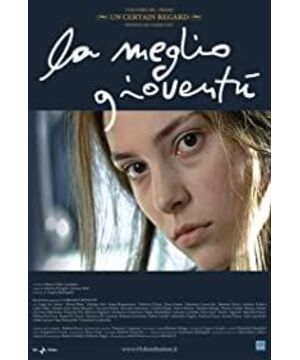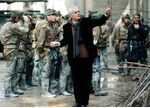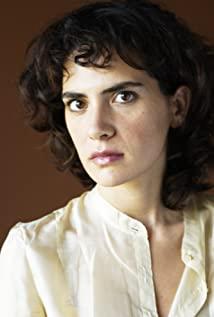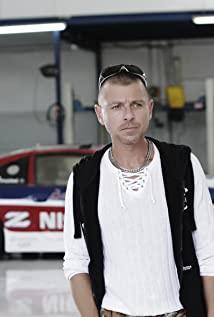On New Year's Eve, at the beginning of the new year, with a neat turn over on the balcony, Madio passed away. At this time, the fireworks outside were blooming gorgeously...
Madio is a confusing character in "A Splendid Life". Also a most tragic character.
Madio's heart is rebellious. There was always a resistance in his heart that made him brave and made him strong. As Nicola said when talking about Madio with Madio's son: he was as brave and tragic as Achilles. During the interview, Madio's concise and powerful rebuttal and fearless eyes were his first rebellious performance in the film. His subsequent choice to enlist in the army was also a measure of restraint against his own primitive impulse, which we can confirm from his Sicilian police chief's answer to his lack of performance in the army.
Officer: "I found that you have a weird personality. I have read your performance report and found that you have no performance. Some of them are just noisy incidents. You have a bad temper and refuse to be manipulated. What do you expect from joining the police force?
" : "Discipline."
Chief: "What do you mean?"
Madio: "Enforce discipline."
Chief: "Really?"
Madio: "Yes, I do things according to orders, just take care of my own duties."
Madio's heart is fragile and lonely at the same time. He likes being alone, likes freedom, and rejects all prying eyes on his life and heart. When he first met Melalie in Sicily and taught Melalie to look inside others, he refused others to know himself, calling himself Nikolai; when his sister visited him, blaming him for not telling them about him When faced with the situation, he slapped the case and shouted angrily: "You're like a stepmother, I've had enough." "You shouldn't judge others like a court." He did it because of his The heart has been in a state of emptiness, hesitation, and terrible. He wants to live in a closed world, yearns for absolute freedom, and others do not approach him and understand him. When Meralli found out Madio's true identity and went to the police station to find him, there was an argument between them, Madio said: "My duty is to investigate others, but you are all investigating me, including you and my sister. , everyone wants to know about me." That's exactly Madio's outcry against others knowing about his life. In the end, Melalie said: "You like books because you can give them up at any time." For him, books are a medium for understanding other people's hearts. He can understand the inner world of the characters in the book and the inner world of the author, but the book cannot understand him, which is one of the reasons why he likes books. (And one reason is that he wanted to find a solution to his inner and spiritual confusion in the book.)
Change seems to be another characteristic of Madio. The film starts with Madio seriously reviewing for the interview, but when he participated in the interview, he resolutely gave up his own exam; when Zuozhen was taken away, Madio's frustrated heart made him give up traveling and abandon himself. His elder brother, Nikolai, took the train back to Rome alone; after meeting Melalie, he hesitated to break the appointment, and finally had to call Melalie again amid the pain in his heart.
The book that Madio borrowed from the library was the novel "Small Town Freaks" by American author Sherwood Anderson. The book describes a group of eccentrics living in a small town in Ohio. The author describes the contradictions and conflicts between the desires, instincts, and pursuit of life of the eccentrics through a profound heart and the realistic morality and system. The helpless life makes the strange people full of depression, pain and resentment. At this time, Madio was in such a state of mind. For Madio, life is like an unsolved mystery. In life, he always thinks about what to do is right, but when he does it, he is always wrong. He felt powerless in the face of life, difficult to call the shots, and was tortured by the reality of life. But he is also tenacious, unyielding, and his resolute character strongly denounces his incompetence and indecision. He uses his unyielding will to drive his hesitant heart to make difficult choices in the uncontrollable reality.
Melally: "You like books because you can give them up at any time, but life is different, it's not up to you."
Madio: "You're wrong, I often make the call, and it's my decision not to see you anymore. "
It was Madio's desire to be independent and to face the real life outcry, as a lone fighter who fought tenaciously in a life of helplessness.
His heart is uncertain, so he is fragile and fickle; his spirit is confused, so he refuses to be understood; his nature is rebellious, so he is brave and omnipotent fearful. He's such a quirky and incomprehensible yet endearingly tragic hero.
Madio's death may be the best ending for him. An unsolvable puzzle of life, he couldn't solve it, so he simply destroyed it.
The very similar character to Madio in the film is Julia. Julia, like Madio, has a strong heart and raw impulses. Madio excelled in his studies since childhood, but finally gave up his studies; Julia had a talent for talking about the piano since she was a child, but finally chose to study mathematics. The difference between them is that they take different actions on the road to face the difficult choices in life. Madio's choice is to suppress himself with no good solution, while Julia's choice is to "take a big step forward". But the endings of both are tragic. Madio's repression made him finally die in loneliness, and Julia's "big strides", the road to the killer was finally arrested.
View more about The Best of Youth reviews











